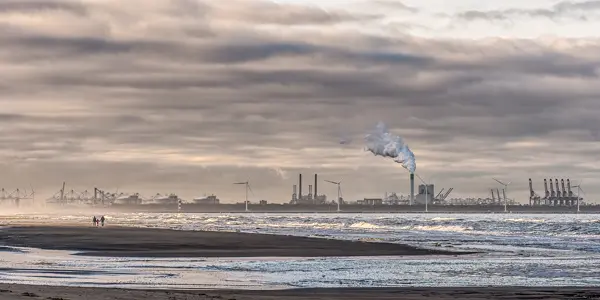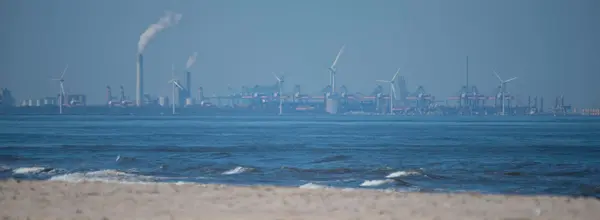
The Netherlands is at a crossroads. In recent months, we have witnessed a worrying trend: major industrial companies are leaving the country. LyondellBasell is one of the latest names on this growing list, but it is certainly not the only large industrial company that has decided to relocate.
In recent years, several multinational corporations have moved their production facilities or headquarters to other countries. In 2021, Shell announced it was relocating its headquarters from The Hague to the United Kingdom, partly due to Dutch dividend taxation and regulatory measures that were perceived as less favorable. Unilever followed a similar path, moving its headquarters entirely to London. Likewise, DSM, one of the largest chemical companies in the Netherlands, transferred its headquarters to Switzerland following its merger with Firmenich. In the industrial sector, Nouryon and Huntsman have shifted production capacities to other countries where costs are lower and regulations are more flexible.
The departure of these companies signals that the Netherlands is becoming increasingly less attractive as a business location, with significant economic consequences.
Why are major companies leaving the Netherlands?
The reasons behind these departures are clear: soaring energy prices, stringent environmental regulations, and a lack of economic certainty. These factors raise serious concerns about the future of the Dutch industry and the broader impact on the economy. What can we do to reverse this trend and keep the Netherlands attractive for major industrial players?
Why the Netherlands is losing its appeal to industries
For a long time, the Netherlands was considered a highly attractive destination for industrial companies and multinationals. One of the key reasons was its strategic location in Europe, with the Port of Rotterdam serving as one of the world’s largest logistical hubs, offering businesses direct access to international markets.
Additionally, the Netherlands was known for its stable political and economic climate, which made investments predictable and secure. Tax benefits and fiscal policies also played a significant role. Until a few years ago, the Netherlands had a favorable corporate tax environment, including incentives such as the innovation box and low profit taxes for multinationals. These policies attracted companies like Shell, Unilever, and numerous foreign investors.
Moreover, for years, the country had a reliable and affordable energy supply, largely thanks to the vast natural gas reserves in Groningen. Businesses also benefited from a highly skilled workforce and an international business culture. The Netherlands was seen as a hub for innovation and collaboration, with strong research institutions and universities working directly with companies in sectors such as chemicals, energy, and technology.
Why are energy prices rising and why are companies leaving?

The Netherlands has some of the highest energy prices in Europe due to factors such as CO₂ levies, energy taxes, the phase-out of Groningen’s natural gas production, and the rapid energy transition. These measures have made energy significantly more expensive for businesses, prompting some to relocate to countries with lower costs and more stable markets, such as Germany, Belgium, and the United States.
On a global scale, competing nations offer subsidies and tax benefits that the Netherlands struggles to match.
Consequences for the Netherlands
The departure of major companies like Shell, LyondellBasell, Tronox, and Indorama has severe economic and social consequences:
• Loss of jobs and tax revenues.
• Negative impact on suppliers and local businesses.
• Decline in international investment and competitiveness.
• A potential domino effect, where more companies leave, further straining economic stability.
What can the government do to stop this relocation wave?
To prevent further industrial decline, the Dutch government must take action. One of the most crucial steps would be reducing energy taxes and CO₂ levies. By easing the financial burden on businesses, the Netherlands could become a more attractive place for industrial production.
The government can also invest in sustainable energy solutions that help companies operate affordably and environmentally responsibly. For example, subsidies could be provided to businesses seeking to transition to greener energy consumption.
Moreover, offering long-term stability is key. Companies dislike unpredictable regulations and constantly changing tax policies. If the government establishes clear, long-term plans, businesses will be less inclined to relocate.
What can companies do to stay competitive?

Despite all these challenges, companies operating in the Netherlands can take strategic steps to keep costs under control. This is where a smart project controls tool like Cleopatra Enterprise plays a crucial role.
By improving project planning efficiency, businesses can minimize waste and optimize energy use. It is essential to prevent budget overruns and make strategic decisions regarding maintenance and investments. Through advanced cost calculations, companies can precisely determine where savings can be made without sacrificing quality or productivity.
Tools like Cleopatra Enterprise not only help companies save costs but also provide strategic insights into expenditures. By making data-driven decisions, businesses can remain competitive, even in an environment with higher energy costs.
The future of Dutch industry depends on action now
The departure of major companies from the Netherlands is not a problem of the future—it is happening now. If we fail to act quickly, we risk losing even more industrial players, jobs, and economic growth. The government must implement policies that strengthen the Dutch business climate and attract investment, while companies must find smarter ways to manage costs.
The Netherlands has the knowledge, infrastructure, and talent to remain a global leader in industry. However, if we do nothing, we risk losing that position. Now is the time to act.
Want to learn how Cleopatra Enterprise can help manage costs and improve efficiency? Contact us today to discover the possibilities.
As early as in 2019, Gartner said that artificial intelligence (AI) will take over 80% of project management…
As one of the Project Controls Experts at Cleopatra Enterprise, Stephanie Ritchie sees a lot of common mistakes…
Related resources

9 Key Benefits of Using Project Controls Tools
Managing a project and keeping it under “control” can be an extremely challenging process. That’s where project controls software comes in as an essential tool to empower project controllers in handling budgets, analyzing data, and addressing critical questions during the project lifecycle.
Read blog article
Cost overruns in projects: meaning, causes, and how to prevent them
Discover the top 5 reasons for project cost overruns, a practical checklist to prevent them, and expert strategies to manage overruns effectively.
Read blog article